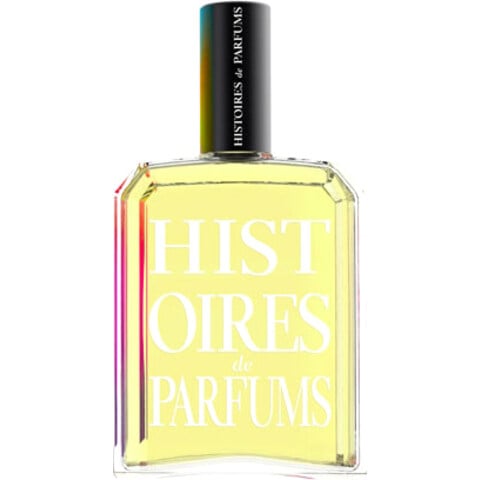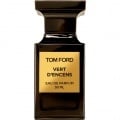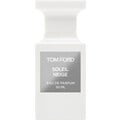1472 Histoires de Parfums 2021
18
Top Review
Translated
Show original
The Divine Comedy - From Inferno to Paradise
Dante Alighieri wrote from 1307 to 1321 the Divina Commedia, the divine comedy, which is still considered a piece of world literature. The book describes Dante's journey from the dark horrors of the "Inferno", through the purifications of the "Purgatorio" to the light-filled beauty of the "Paradiso".
1472 is the earliest date in the "Histoires de Parfums" series and is all about the divine comedy, especially the contradictions described in the book - sin and virtue, faith and unbelief, good and evil. And it is precisely this tension, these contradictions and the struggle for the sovereign claim of life itself that this fragrance reflects in fact very beautiful.
Dante's work is inherent in a deep numerical meaning, especially the number 3 seems to have done it to Dante at the time. Thus, the whole work is divided into three parts (hell, purgatory, paradise) and especially hell is composed of 3x3 "circles". 33 years by the way also the age in which Jesus should have died...
A look at the notes in 1472 reveals amazing - 3 phases (head, heart, base) with 3 fragrances each. Coincidence?
But how does this tightrope walk between heaven and hell, between light and dark smell now?
Exactly, namely incredibly exciting with an interplay of different notes. The fragrance starts floral, bright and life-affirming. Especially the "solar note" is to evoke an uplifting, uplifting and sparkling mood, which together with Artemisia and Ylang-Ylang also succeeds relatively well. The fragrance journey thus starts not as with Dante with hell, but directly in paradise.
After a relatively short time, the very beautiful jasmine then comes to the fore and takes over the dominance for the time being. At this point, the fragrance then also briefly threatens to drift into a typical jasmine-tuberose summer fragrance. After another 15 minutes, however, purgatory breaks out in the form of cinnamon and incense, although I can perceive cinnamon only minimally. Here it then becomes a bit drier, darker and also more mysterious. The incense may be a portent of what then comes in the "hell" on one.
This awaits the inclined visitor then befitting with dark, woody-resinous and humid notes, which were selected by the prince of darkness determined himself. Dominant remain for me but jasmine and incense, which complement each other wonderfully. In the drydown, the fragrance is then very dry and woody and almost a little reminiscent of Bois Marocain or Black Calamus .
Overall, the fragrance may not seem necessarily three-part, but it already goes through a decent transformation. All notes fight over dominance on the skin and it creates an interplay, as it could not have been described more beautifully by Dante. There is also no clear answer to the question of whether it is more of a masculine or feminine fragrance, as there is a battle of classically gendered notes here as well. Is the fragrance at first rather typically feminine, he then transforms in the further course more and more into at least a unisex fragrance.
The durability in the fragrance is with 7-8 hours in the midfield, and the sillage is also noticeable perceptible, but holds back as far as possible.
I think the fragrance is really successful and with the associated story of Dante an all-around great thing. However, he does not reinvent the wheel and is also not a masterpiece. Nevertheless - it is exciting and makes a really interesting transformation. So anyone who wants to accompany Dante on his way through hell to paradise (here, however, in reverse order) once, should definitely try this fragrance once. And the whole then best to read the "Divina Commedia".
1472 is the earliest date in the "Histoires de Parfums" series and is all about the divine comedy, especially the contradictions described in the book - sin and virtue, faith and unbelief, good and evil. And it is precisely this tension, these contradictions and the struggle for the sovereign claim of life itself that this fragrance reflects in fact very beautiful.
Dante's work is inherent in a deep numerical meaning, especially the number 3 seems to have done it to Dante at the time. Thus, the whole work is divided into three parts (hell, purgatory, paradise) and especially hell is composed of 3x3 "circles". 33 years by the way also the age in which Jesus should have died...
A look at the notes in 1472 reveals amazing - 3 phases (head, heart, base) with 3 fragrances each. Coincidence?
But how does this tightrope walk between heaven and hell, between light and dark smell now?
Exactly, namely incredibly exciting with an interplay of different notes. The fragrance starts floral, bright and life-affirming. Especially the "solar note" is to evoke an uplifting, uplifting and sparkling mood, which together with Artemisia and Ylang-Ylang also succeeds relatively well. The fragrance journey thus starts not as with Dante with hell, but directly in paradise.
After a relatively short time, the very beautiful jasmine then comes to the fore and takes over the dominance for the time being. At this point, the fragrance then also briefly threatens to drift into a typical jasmine-tuberose summer fragrance. After another 15 minutes, however, purgatory breaks out in the form of cinnamon and incense, although I can perceive cinnamon only minimally. Here it then becomes a bit drier, darker and also more mysterious. The incense may be a portent of what then comes in the "hell" on one.
This awaits the inclined visitor then befitting with dark, woody-resinous and humid notes, which were selected by the prince of darkness determined himself. Dominant remain for me but jasmine and incense, which complement each other wonderfully. In the drydown, the fragrance is then very dry and woody and almost a little reminiscent of Bois Marocain or Black Calamus .
Overall, the fragrance may not seem necessarily three-part, but it already goes through a decent transformation. All notes fight over dominance on the skin and it creates an interplay, as it could not have been described more beautifully by Dante. There is also no clear answer to the question of whether it is more of a masculine or feminine fragrance, as there is a battle of classically gendered notes here as well. Is the fragrance at first rather typically feminine, he then transforms in the further course more and more into at least a unisex fragrance.
The durability in the fragrance is with 7-8 hours in the midfield, and the sillage is also noticeable perceptible, but holds back as far as possible.
I think the fragrance is really successful and with the associated story of Dante an all-around great thing. However, he does not reinvent the wheel and is also not a masterpiece. Nevertheless - it is exciting and makes a really interesting transformation. So anyone who wants to accompany Dante on his way through hell to paradise (here, however, in reverse order) once, should definitely try this fragrance once. And the whole then best to read the "Divina Commedia".
5 Comments
Latest Reviews
 Smoetn 3 years ago
Smoetn 3 years ago
Let it snow, let it snow, let it snow
I'm sitting in front of the fireplace in my favourite armchair and have a nice warm cup of tea in my hands. The fire in the fireplace crackles and crackles and through the window I can slowly see the snow falling in thick flakes....
Translated




